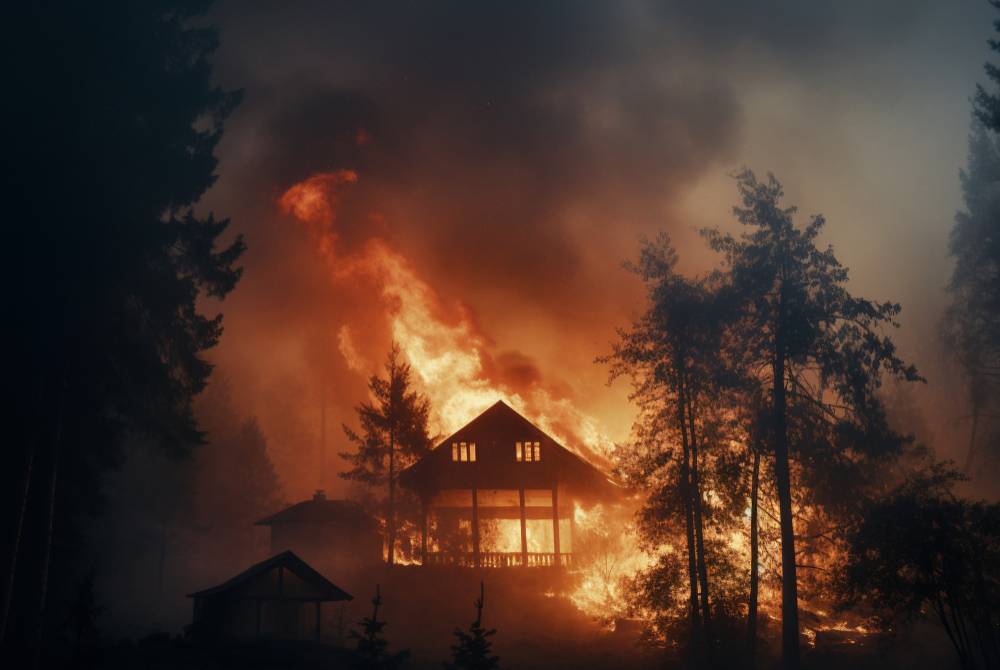24/7 Emergency Service
24/7 Emergency Service

Wildfires are a growing concern in many regions, especially where dry conditions and dense vegetation are prevalent. Reducing wildfire fuels around your property is essential for protecting your home and ensuring your family's safety. At the Southern Star Tree, we can help you minimize the available combustible materials on your premises, creating a defensible space that significantly lowers the risk of wildfires spreading to your home. Here are four practical ways to reduce wildfire fuels around your property.
Creating defensible space zones is one of the most effective strategies to reduce wildfire fuels. A tree care company can divide your property into zones with varying levels of vegetation. The first 5 feet from your home should be free of flammable materials like dry leaves, branches, and firewood. Regular tree pruning and thinning are required to reduce foliage density from 5 to 30 feet away, also known as the intermediate zone. The last part, the extended zone, is 30 to 100 feet away and often involves tree removal or thinning to prevent the rapid spread of fire. These defensible zones protect your property and provide safe access for firefighters during an emergency.
Selecting fire-resistant plants for your landscaping can significantly reduce wildfire risks. Unlike highly flammable vegetation, arborists can recommend fire-resistant plants that have high moisture content, fewer volatile oils, and low sap production. Some excellent choices less likely to catch fire include succulents, lavender, and yarrow. Consult a professional tree service to strategically plant these tree species to prevent fires and slow down or even stop a fire from advancing toward your home. In addition, maintaining your landscaping by regularly watering, mulching with non-combustible materials, and tree removal in Decatur where necessary ensures these plants retain fire-resistant properties.
Dead and dry vegetation is a significant fuel source for wildfires. Regularly clearing your property of such debris is crucial in minimizing fire risk. This includes removing dead leaves, pine needles, fallen branches, and other dry organic material from your yard, roof, and gutters. Tree service professionals recommend proper disposal of this vegetation, such as composting or disposing of it at a green waste facility. Keeping grasses mowed to a height of 4 inches or less, especially in the dry months, also reduces fire hazards. A consistent schedule with a tree care company for vegetation clearance ensures that potential wildfire fuels around your property are reduced.
Besides vegetation management, using fire-resistant building materials is a proactive step in reducing wildfire risks. Materials such as metal roofing, concrete, brick, and fiber cement siding are much less flammable than wood or other traditional building materials. Installing double-paned or tempered glass windows, fireproof doors, and ember-resistant vents further enhances your home's resistance to wildfire. While these upgrades may require an initial investment, the long-term benefits of safety and reduced fire insurance costs make them worthwhile. Fire-resistant materials are a strong line of defense, giving your property a better chance of surviving a wildfire.
Reducing wildfire fuels around your property involves a combination of strategic landscaping, regular maintenance, and intelligent building choices. Following these helpful tips can significantly reduce the risk of wildfires damaging your property. Contact us at the Southern Star Tree and schedule a consultation with our certified arborists to protect your home and loved ones from fire-related hazards.
15 April, 2025
Trees are prized treasures that require regular care to maintain good health and vitality for many years to come. At Southern Star Tree, we leverage extensive expertise and knowledge to help you preserve ...
Read More08 April, 2025
Do you have young trees on your residential or commercial property? If so, scheduling regular trimming with a trusted tree care company in Brookhaven, GA is vital to ensure healthy growth and longevity. At ...
Read More